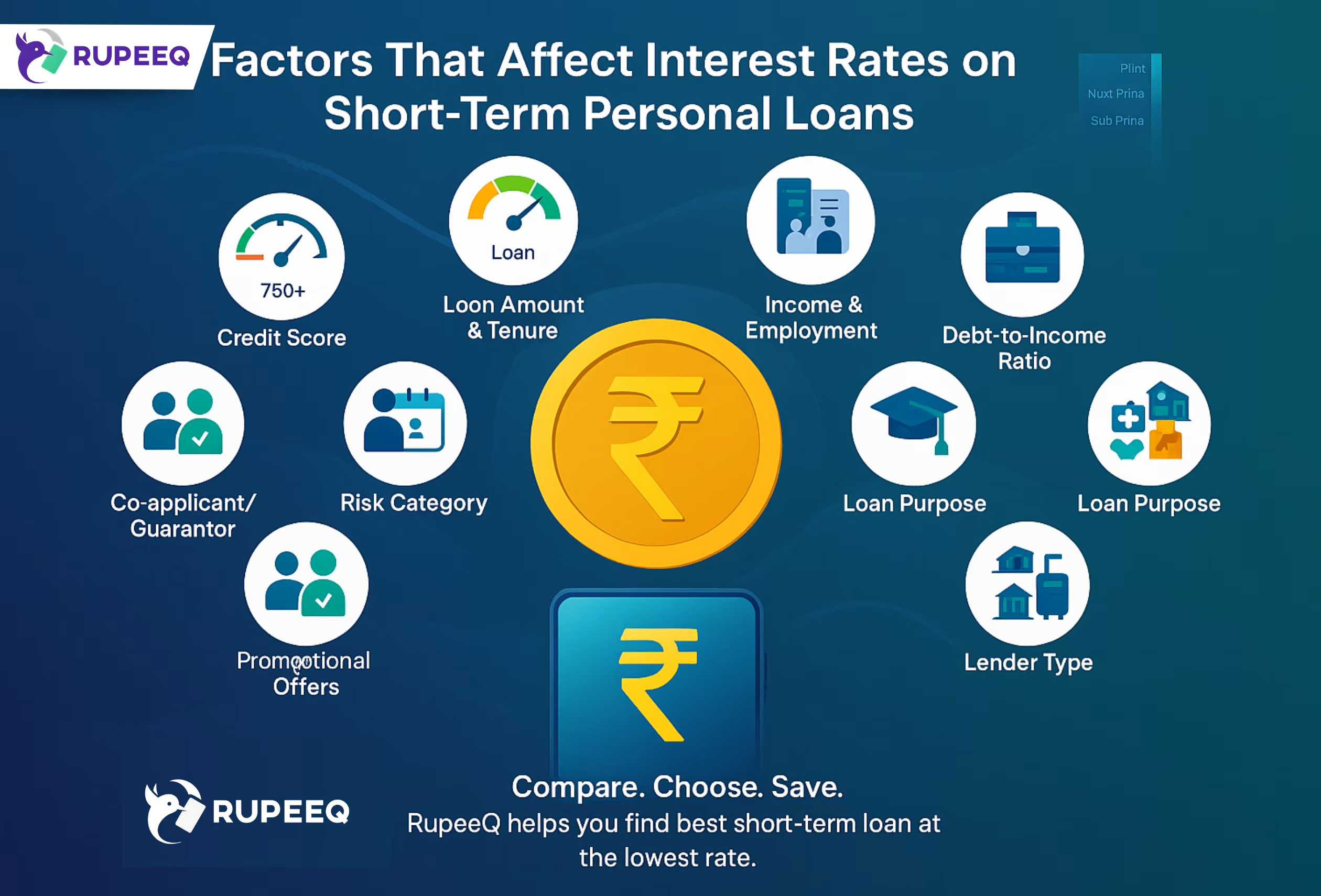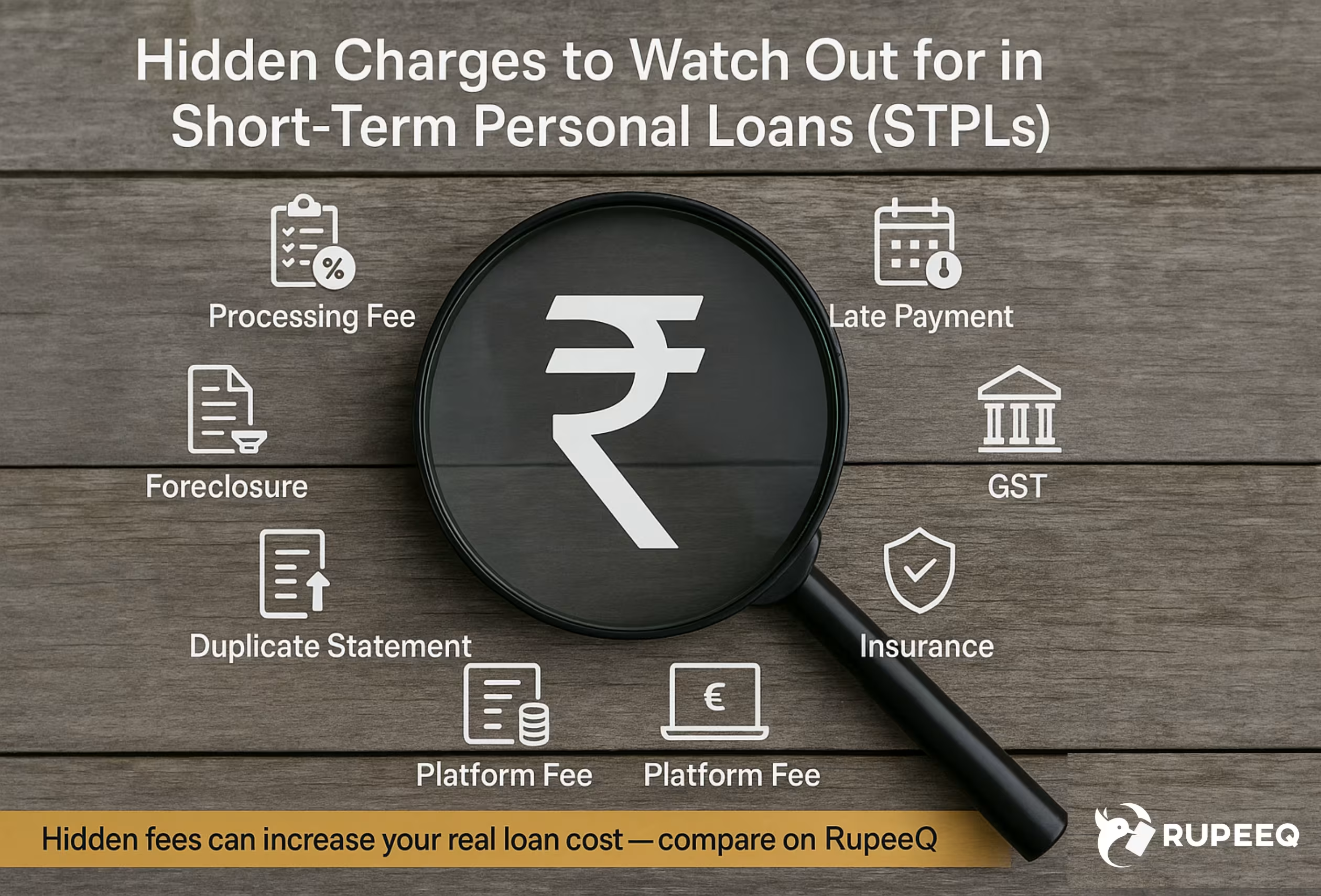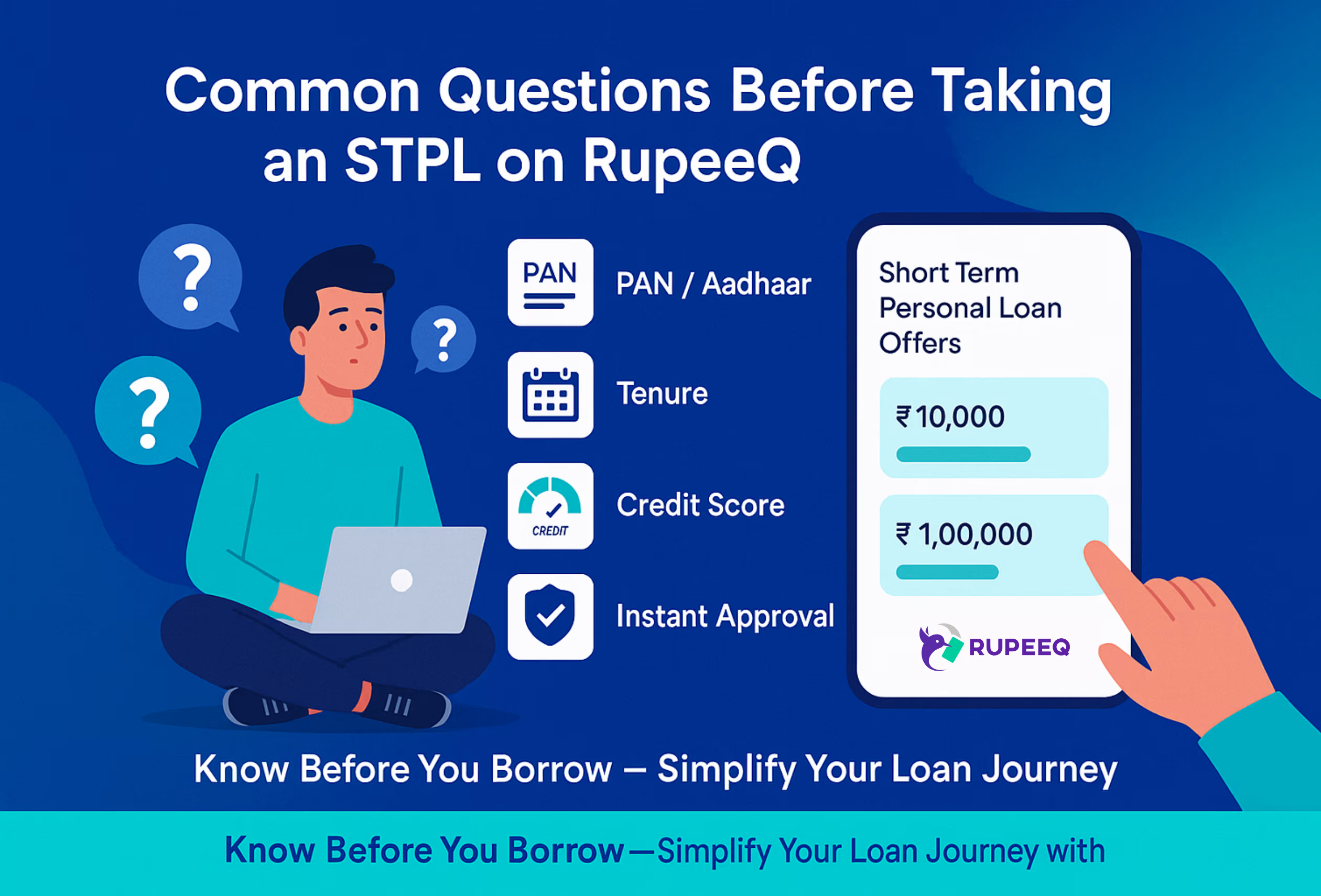Applying for a personal loan can be challenging, especially if you have a low credit score, unstable income, or insufficient credit history. In such cases, lenders may require you to add a co-signer to your loan application to reduce their risk.
A co-signer is someone who agrees to take responsibility for your loan repayment if you fail to make payments. This increases your chances of getting approved for a personal loan at better interest rates.
In this blog, we will cover:
- What is a co-signer?
- How does having a co-signer affect your loan?
- Who qualifies as a co-signer?
- Pros and cons of having a co-signer
- When do you need a co-signer?
- RupeeQ insights to help you make the right choice
What is a Co-Signer for a Personal Loan?
A co-signer is a creditworthy individual who signs your loan agreement and agrees to repay the loan if you default. Lenders consider a co-signer’s creditworthiness, income stability, and financial health to approve the loan.
Key Features of a Co-Signer Agreement
- The co-signer is legally responsible for loan repayment if the primary borrower fails.
- The loan appears on both the borrower’s and co-signer’s credit reports.
- A strong co-signer helps secure a lower interest rate.
How a Co-Signer Affects Loan Approval
| Scenario | Loan Approval Chances Without Co-Signer | Loan Approval Chances With Co-Signer |
| Credit Score Below 650 | Low | High |
| No Credit History (New Borrower) | Low | High |
| Unstable Income (Freelancers, Self-Employed) | Moderate | High |
| High Debt-to-Income Ratio (Above 40%) | Low | High |
RupeeQ Tip – If your credit score is below 700 or your income is unstable, adding a co-signer can significantly improve your loan approval chances and help you secure a lower interest rate.
Co-Signer vs. Co-Applicant: What’s the Difference?
Many borrowers confuse co-signers with co-applicants, but these two roles have distinct responsibilities in a personal loan application. Understanding their differences is crucial in choosing the right option for your loan application.
Key Differences Between a Co-Signer and a Co-Applicant
| Feature | Co-Signer | Co-Applicant |
| Primary Purpose | Helps borrower qualify for a loan but does not receive loan benefits. | Shares the loan amount and repayment responsibility. |
| Loan Ownership | No ownership; does not receive funds. | Partial ownership; co-applicant has access to loan funds. |
| Repayment Responsibility | Only required to pay if the primary borrower defaults. | Equally responsible for all loan EMIs from the beginning. |
| Impact on Credit Score | Affects the co-signer’s credit score only if the borrower defaults. | Affects both applicants’ credit scores equally. |
| Common Use Cases | Used when the primary borrower has low credit score or unstable income. | Used when two people jointly take a loan for higher eligibility and loan amount. |
| Example | A student applying for a loan with a parent as a co-signer. | A married couple applying for a home loan together. |
When Should You Choose a Co-Signer vs. a Co-Applicant?
- Choose a co-signer if you need a strong credit profile to back your application but don’t want to share the loan with another person.
- Choose a co-applicant if you want to take a loan with someone and share financial responsibility.
Who Can Be a Co-Signer for a Personal Loan?
Lenders prefer co-signers who have a strong credit profile and stable income. The following individuals can qualify as a co-signer:
- Parents or Siblings – Most commonly chosen co-signers for young borrowers.
- Spouse or Close Relatives – Ideal if they have a strong financial profile.
- Friends or Business Partners – Some lenders allow non-family co-signers.
- Colleagues or Employers – If they are willing to take financial responsibility.
What Makes a Strong Co-Signer?
- Credit Score of 750+ – Higher scores improve approval chances.
- Stable Job & Income – Salaried individuals with ₹50,000+ monthly income are preferred.
- Low Debt-to-Income Ratio – Ensures they can manage their own debts while co-signing yours.
RupeeQ Tip – Before asking someone to be your co-signer, ensure they understand the risks involved. If you fail to repay, their credit score and financial stability can be affected.
Pros and Cons of Having a Co-Signer
Let’s have a look at both pros and cons of having a co-signer in your loan application:
Pros of Having a Co-Signer
- Higher Loan Approval Chances – Lenders are more likely to approve loans with a co-signer’s strong credit profile.
- Lower Interest Rates – A co-signer with a high credit score can help secure better loan terms.
- Higher Loan Amount Eligibility – Borrowers may qualify for a larger loan amount with a co-signer.
- Credit Score Improvement – Responsible repayment benefits both the borrower and the co-signer’s credit scores.
Cons of Having a Co-Signer
- Negative Credit Impact – Missed payments affect both the borrower’s and co-signer’s credit scores.
- Relationship Strains – If repayment issues arise, it can affect personal relationships.
- Financial Risk for the Co-Signer – The co-signer’s loan eligibility may be affected until the loan is repaid.
When Do You Need a Co-Signer for a Personal Loan?
You may need a co-signer in the following situations:
If You Have a Low Credit Score (Below 650)
- Borrowers with a low credit score face high rejection rates.
- A co-signer improves your creditworthiness, increasing approval chances.
Example
Amit applied for a ₹5 Lakh personal loan but had a credit score of 620. His loan was rejected. He added his father as a co-signer (credit score: 780) and got approved at a lower interest rate.
If You Have No Credit History (First-Time Borrower)
- Young professionals, students, and new credit users may struggle with loan approvals.
- A co-signer provides credit assurance to lenders.
Example
Neha, a recent graduate, applied for her first ₹2 Lakh personal loan but had no credit history.
Her sister co-signed the loan, enabling approval at a lower rate.
If You Have an Irregular Income (Freelancers, Self-Employed)
- Lenders prefer stable salaried income for loan approvals.
- A co-signer helps mitigate the risk of inconsistent earnings.
Example
Rohan, a freelance graphic designer, applied for a ₹3 Lakh loan. Due to inconsistent income, his loan was denied.
He added his employed spouse as a co-signer and secured approval.
If You Have a High Debt-to-Income Ratio (Above 40%)
- Too many existing loans reduce loan eligibility.
- A co-signer improves the borrower’s debt repayment capacity in the eyes of lenders.
Example
Suresh had a home loan, car loan, and credit card dues, leading to a DTI ratio of 50%. By adding his brother as a co-signer, he reduced risk and secured a personal loan approval.
RupeeQ Insights: Should You Get a Co-Signer?
You Should Consider a Co-Signer If:
- You have a low credit score (below 650).
- You have no credit history as a first-time borrower.
- You are self-employed or a freelancer with irregular income.
- Your debt-to-income ratio is high (above 40%).
You Don’t Need a Co-Signer If:
- Your credit score is 750+ and you have stable income.
- You meet the lender’s eligibility criteria on your own.
- You can secure a loan at favorable terms without assistance.
A co-signer can be a valuable asset in securing a personal loan at better interest rates and higher approval chances. However, borrowers must be responsible, as a default can negatively impact both parties.







